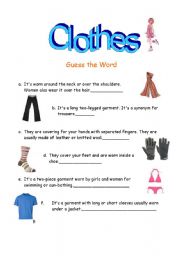
|
CLOTHES
students read the definitions, look at the pictures and guess the word that it is being described.
Level: intermediate
Age: 11-17
Type: worksheet
Downloads: 8
|

|
Clothes description
students look at this set of pictures and describe them, by using physical appearance, clothes. They can even predict why they are wearing those clothes.
Easy exercise to develop the speaking skill.
Level: elementary
Age: 10-17
Type: activity-card
Downloads: 2
|
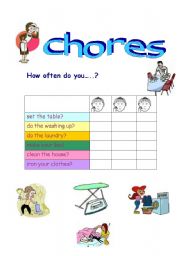
|
Chores
a short survey, used to practice vocabulary on chores, and present simple.- frequency adverbs are also used here.
Level: elementary
Age: 8-14
Type: worksheet
Downloads: 7
|
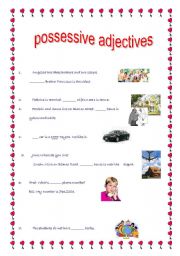
|
possessive adjectives
students read the sentences and fill in the blanks with the correct possessive adjective
Level: elementary
Age: 9-14
Type: worksheet
Downloads: 21
|
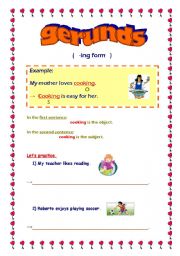
|
gerunds
an easy worksheet to practice the use of gerunds as a subject or as an object
Level: elementary
Age: 9-14
Type: worksheet
Downloads: 17
|
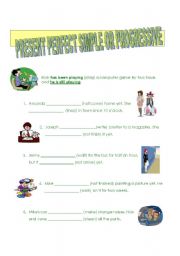
|
Present perfect: simple or progressive?
students get the correct tense by analyzing sentences and pictures. they can make clear difference between these two tenses.
Level: intermediate
Age: 14-17
Type: worksheet
Downloads: 71
|
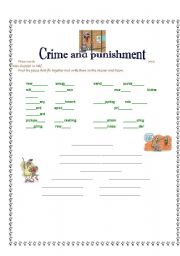
|
suffixes and prefixes
A word formation exercise in a context.
students can find new word by joining them together. This can be the perfect introduction to talk about thigs happening in our world, and to make them conscious on how to help.
Level: intermediate
Age: 14-17
Type: worksheet
Downloads: 16
|
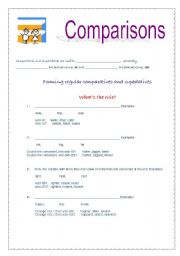
|
Comparisons
your students remember more when they are the ones involved in the development of an activity. This exercise lets them get the rules from examples and then, apply them in context.
Level: intermediate
Age: 12-17
Type: worksheet
Downloads: 6
|
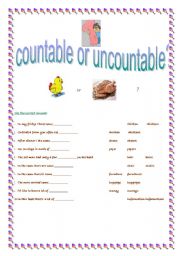
|
countable or uncountable?
students classify the nouns as countable and uncountable, according to the sentence, finding the difference in when to use one or the other.
Level: elementary
Age: 12-17
Type: worksheet
Downloads: 14
|
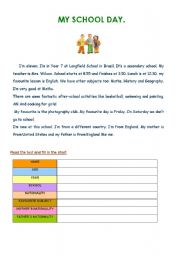
|
My school day
easy reading text with exercises to check comprehsnion and an extra writing activity.
Level: elementary
Age: 11-17
Type: worksheet
Downloads: 28
|